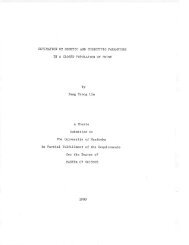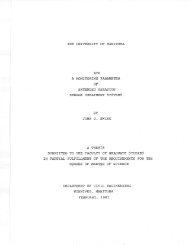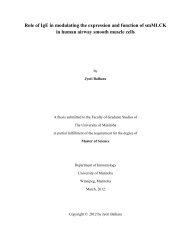Adverbial and Argument-Doubling Clauses in Cree - MSpace
Adverbial and Argument-Doubling Clauses in Cree - MSpace
Adverbial and Argument-Doubling Clauses in Cree - MSpace
Create successful ePaper yourself
Turn your PDF publications into a flip-book with our unique Google optimized e-Paper software.
(107) ( kêtahtawê pr~~kiskêyhtam-pro, ayis<strong>in</strong>iw s i [, pro,-êh-ayiyitB }.<br />
presently know.TA-(3-<strong>in</strong>an) persona' near cj-be. AI-3'<br />
'Presently, she, knew that some person, was near.' (P: 154-02)<br />
Simply clairn<strong>in</strong>g, howevei, that only one proximate arpment is allowed per clause would<br />
mle out an acceptable sentence like the one given <strong>in</strong> (108), where both 'Ben' <strong>and</strong> 'he' are<br />
proximate.<br />
(108) Bert, knows that hei failed the test.<br />
If 'Bert' <strong>and</strong> 'he' are CO-referential, <strong>and</strong> 'Bert' is proximate, then 'he' must be<br />
proxirnate as well. We saw <strong>in</strong> section 4.3.3 that a participant must ma<strong>in</strong>ta<strong>in</strong> its obviation<br />
status between a matrix clause <strong>and</strong> an A-doubl<strong>in</strong>g clause. An analysis that claimed only<br />
one proximate argument per dorna<strong>in</strong>, however, would rule out sentence (108) as<br />
unacceptable (hav<strong>in</strong>g two proximate arguments). It would also predict, <strong>in</strong>correctly, that<br />
the follow<strong>in</strong>g sentence (109) is acceptable, where 'Bert' <strong>and</strong> 'he' are CO-referential, but<br />
there is only one proximate argument <strong>in</strong> the doma<strong>in</strong>.<br />
(109) * BenAprox) knows that hei(obv) failed the test. (CO-referentiai read<strong>in</strong>g)<br />
This sentence cannot mean that 'Bert' himself failed the test. The only acceptable<br />
read<strong>in</strong>g occurs if 'he' refers to somebody other than 'Bert'. We have already discussed<br />
(see section 4.3.3) that if a pronom<strong>in</strong>al argument <strong>in</strong> the A-doubl<strong>in</strong>g clause has a diffeient<br />
obviation status than an argument <strong>in</strong> the matrix verb, t hey cannot be refemng to the same<br />
participant. We can compare the examples <strong>in</strong> (1 10)' which demonstrate that to <strong>in</strong>terpret



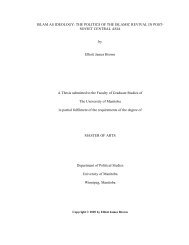
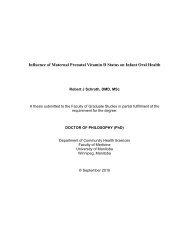
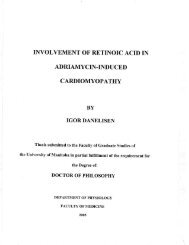
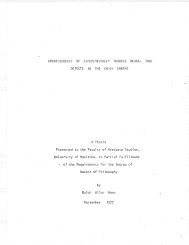
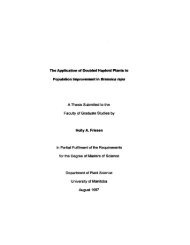
![an unusual bacterial isolate from in partial fulf]lment for the ... - MSpace](https://img.yumpu.com/21942008/1/190x245/an-unusual-bacterial-isolate-from-in-partial-fulflment-for-the-mspace.jpg?quality=85)
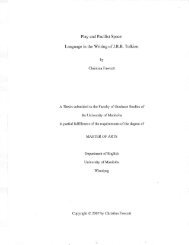
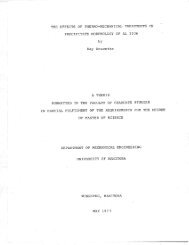
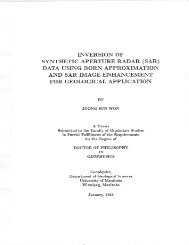
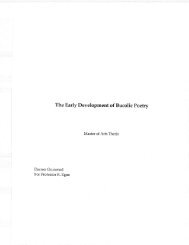
![in partial fulfil]ment of the - MSpace - University of Manitoba](https://img.yumpu.com/21941988/1/190x245/in-partial-fulfilment-of-the-mspace-university-of-manitoba.jpg?quality=85)
